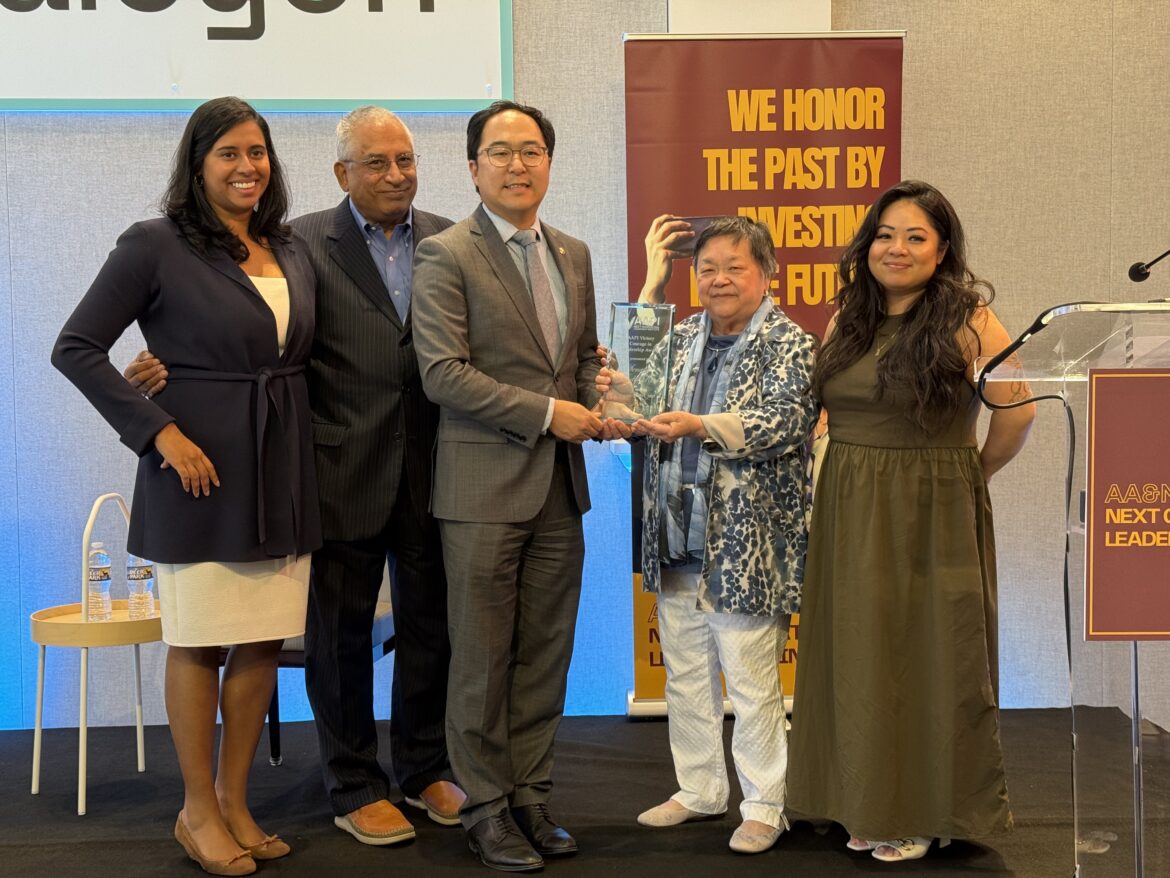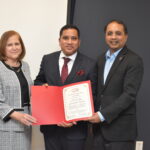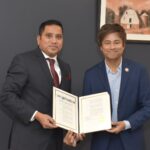U.S. Senator Andy Kim (D-NJ) acknowledged widespread public disillusionment with politics, stating that many Americans view the system as “broken” and are experiencing a “distrust in government right now.”
Speaking at the AA&NHPI Economic Power & Community Summit on May 19, 2025, in Georgetown, Washington D.C. Senator Kim emphasized the growing desire for change. “I think right now, in particular, there’s a hope that different voices can come up, that we can show a different side of this country, and frankly, a new generation of leadership stepping up,” he said.
The son of South Korean immigrants, Kim was honored with the AAPI Victory Courage in Leadership Award at the summit. Reflecting on his upbringing, he shared, “My mom was a nurse, my dad was a medical researcher. We knew nobody in politics; we never talked about politics at the dinner table.”
Kim recalled arriving in Washington, D.C., 21 years ago to begin his career at USAID. “I knew nobody, like not a single soul in the entire city. And I felt like a nobody,” he said.
Kim, who represented New Jersey’s 3rd congressional district from 2019 to 2024, also discussed his decision to run for Senate following the indictment of former U.S. Senator Robert Menendez.
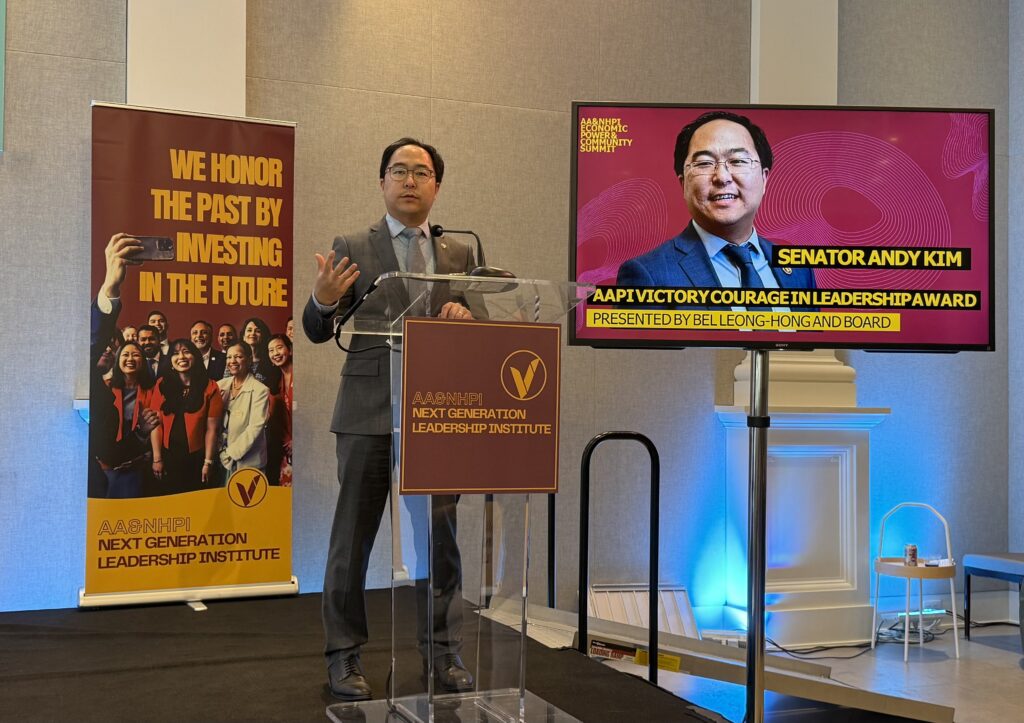
“I was very frustrated,” he said, adding that he announced his candidacy the next day. “I actually have to even run against my own party in New Jersey to be able to get here. And I feel really blessed I can be in the US Senate without owing anybody anything. I can do this job based off of what I think is right for the country, and I think that that’s hopefully something you see in what I’m trying to do.”
Looking ahead, Kim expressed uncertainty about the future but emphasized the importance of collaboration. “I don’t know what happens next, and I think that that’s all going to be very much shaped by some of the decisions that are made in the short term,” he said. He stressed the need for partnerships between government and the private sector to drive innovation and long-term progress for future generations.
“We have this new era of politics emerging, but it’s also happening at this incredibly dynamic new era of innovation and technology,” he said. As a member of the Senate Commerce Committee and a former national security professional, he described the moment as “both exhilarating but also scary.”
Kim, a former State Department official, said his unconventional path into politics continues to shape his public service. “I think the fact that I never actually wanted to be a politician actually allows me to do this job differently… what continues to propel me is I have just a very deep vision for service.”
AAPI Leadership and the Role of Independent Journalism
The summit also featured remarks from Chairman of AAPI Next Gen Leaders, Shekar Narasimhan, who opened the event by challenging outdated perspectives. “We’re here to challenge some old assumptions. We really are here because we believe in the future. Again, the moment may not be the most perfect moment in American history,” he said.
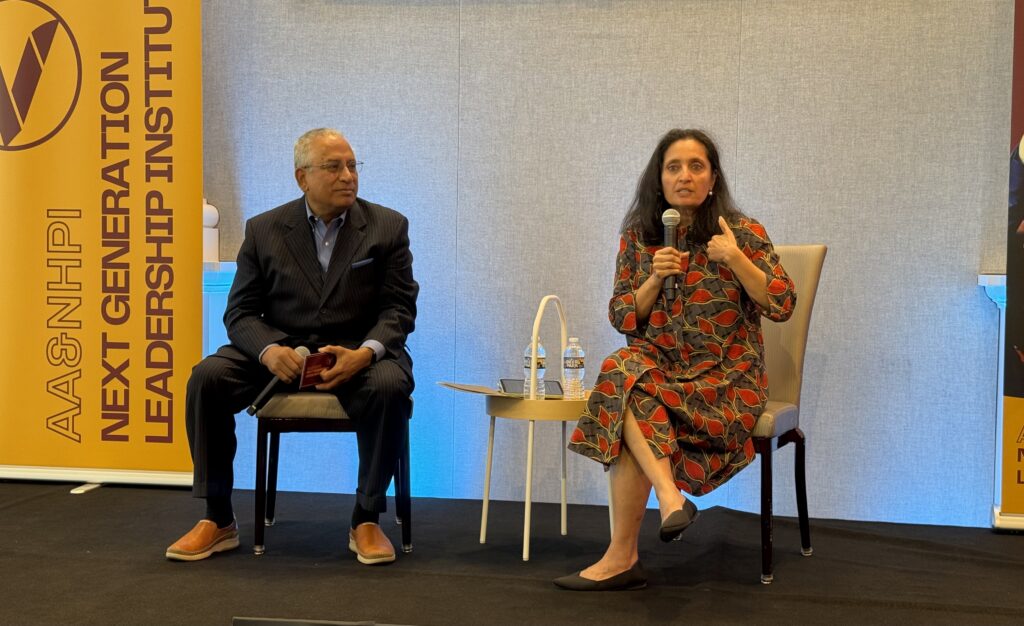
He emphasized the importance of reflection and forward-thinking stating “One is you have to step back just a bit, but you also have to step forward.”
Narasimhan moderated a fireside chat with CEO of the Texas Tribune, Sonal Shah, who spoke passionately about the value of independent journalism. Recalling her return to Texas in 2000, Shah said, “It became very clear that there was no information that was being shared that was consistent.”
“So, when you think about like why democracy matters, you think journalism matters,” she said, discussing the challenges of maintaining consistency in local news coverage and the role of independent media.
“Journalism and independent journalism absolutely matter and how we do it also matters,” Shah continued. She emphasized the need for authenticity and innovation in journalism. “I put journalists on Tiktok because people like listening to my journalists,” she noted, adding that audiences value direct connections with reporters.
“I think that matters, and that’s the way for us to break the barrier of trust,” she added.
As such, she stressed the importance of building relationships between journalists and communities. “People don’t make relationships with my journalists to understand who they are,” she said, highlighting the missed opportunities for trust and engagement.
Shah also highlighted the evolving landscape of news consumption. During a visit to Midland, Texas, she found residents relied on Facebook for news. “Ask any young person where they get news today, and they would say, Tiktok and Instagram,” she said.
“Who’s thinking about where people are getting the [credible] information? That’s what independent journalism is doing,” Shah explained. “We’re looking at not only the news we produce, but how people receive the information.”
Reflecting on intergenerational leadership, Shah noted the differing approaches to information and trust across age groups. “Intergenerationally, we have a different approach to information. We have a different generational approach to trust. We have a different generational approach to institutions,” she said.
To foster trust across generations, she argued, it is crucial to understand how people access information, communicate, and build credibility within their communities.
A spotlight session on “Building Talent Pipelines for the 21st Century,” along with two panel discussions on “Reimagining Economic Power and Innovation,” and “The Creator Economy: Where Culture Meets Capital,” were also featured at the summit.


